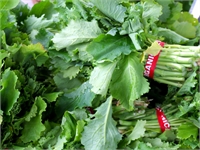
Health Benefits of Vitamin K
Important Notice: Our web hosting provider recently started charging us for additional visits, which was unexpected. In response, we're seeking donations. Depending on the situation, we may explore different monetization options for our Community and Expert Contributors. It's crucial to provide more returns for their expertise and offer more Expert Validated Answers or AI Validated Answers. Learn more about our hosting issue here.

Health Benefits of Vitamin K
You must be logged in to post a comment.
What is Vitamin K?
Vitamin K is a fat soluble vitamin which is stored in the body’s fat tissue and liver. Although Vitamin K plays many roles in keeping the body healthy, it is most known for blood clotting and promoting healthy bones. Vitamin K is a naturally occurring vitamin essential to everyone’s health. While there are different types of K vitamins, only two of those vitamins are natural, K1 and K2 vitamins. K1 vitamins are produced by plants. K2 vitamins are produced by bacteria in the large intestines. Keeping healthy levels of Vitamin K are necessary and beneficial for the body to function properly.
Benefits of Vitamin K
Absorbs and maintains levels of calcium needed by the body for proper functioning.
Blood clotting which is necessary for lessening or stopping excessive blood flow when injured. Blood clotting is one of the first steps the body takes when beginning to heal a wound. Because of this function, Vitamin K may be given to a patient before undergoing surgery.
Promotes bone health by maintaining the calcium levels in bone tissue which is necessary for strengthening bones. In addition to strengthening bones, Vitamin assists in the prevention of weak bones and helps new bones grow.
Prevents hemorrhagic disease in newborns. Many newborns are given an injection of Vitamin K soon after birth. A deficiency of Vitamin K in infants can be fatal.
Reduces and prevents calcification (calcium build-up) in arteries and body tissue.
Promotes functioning of the liver by lowering the risk of developing liver cancer. It inhibits the growth of cancer cells in the liver.
Promotes healthy functioning of the brain and nerves by assisting in the production of sphingolipids, which is a lipid or fat that sheaths the nerves.
Effects of Vitamin K Deficiency
A Vitamin K deficiency is rare, but it does occur. People that suffer from liver disease or damage, eating disorders, alcoholism, or taking certain medications such as barbiturates have a higher risk of developing a Vitamin K deficiency. Signs and symptoms of Vitamin K deficiency include:
Foods Rich in Vitamin K
Vitamin K is already in many of the foods that you consume daily. Therefore, there is no need to change your diet to get the daily requirement of Vitamin K. Natural Vitamin K can be found in these foods as well as many others:
Although many people will not develop a Vitamin K deficiency, it is important to maintain adequate levels of Vitamin K. The necessary amount differs for males and females. It is recommended that males get 120 micrograms (mcg) per day, and females should get 90 mcg per day. However, it is best to consult a physician to determine the correct amount for you.